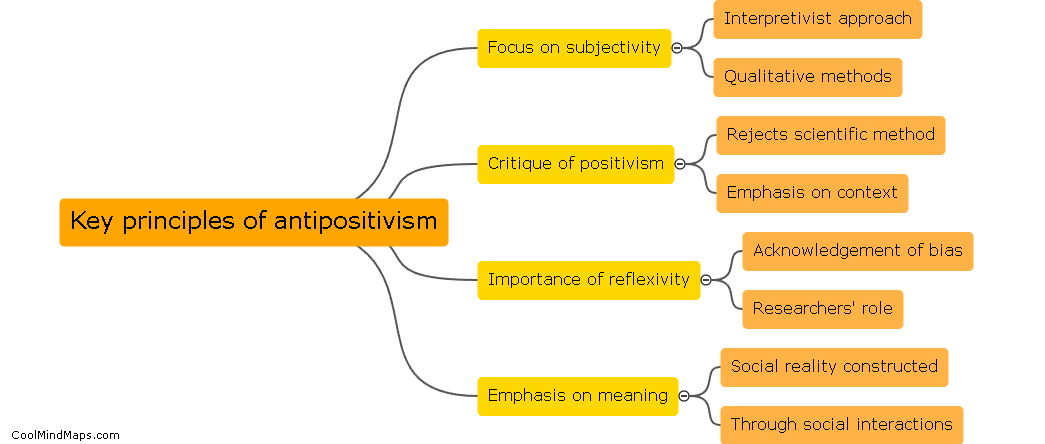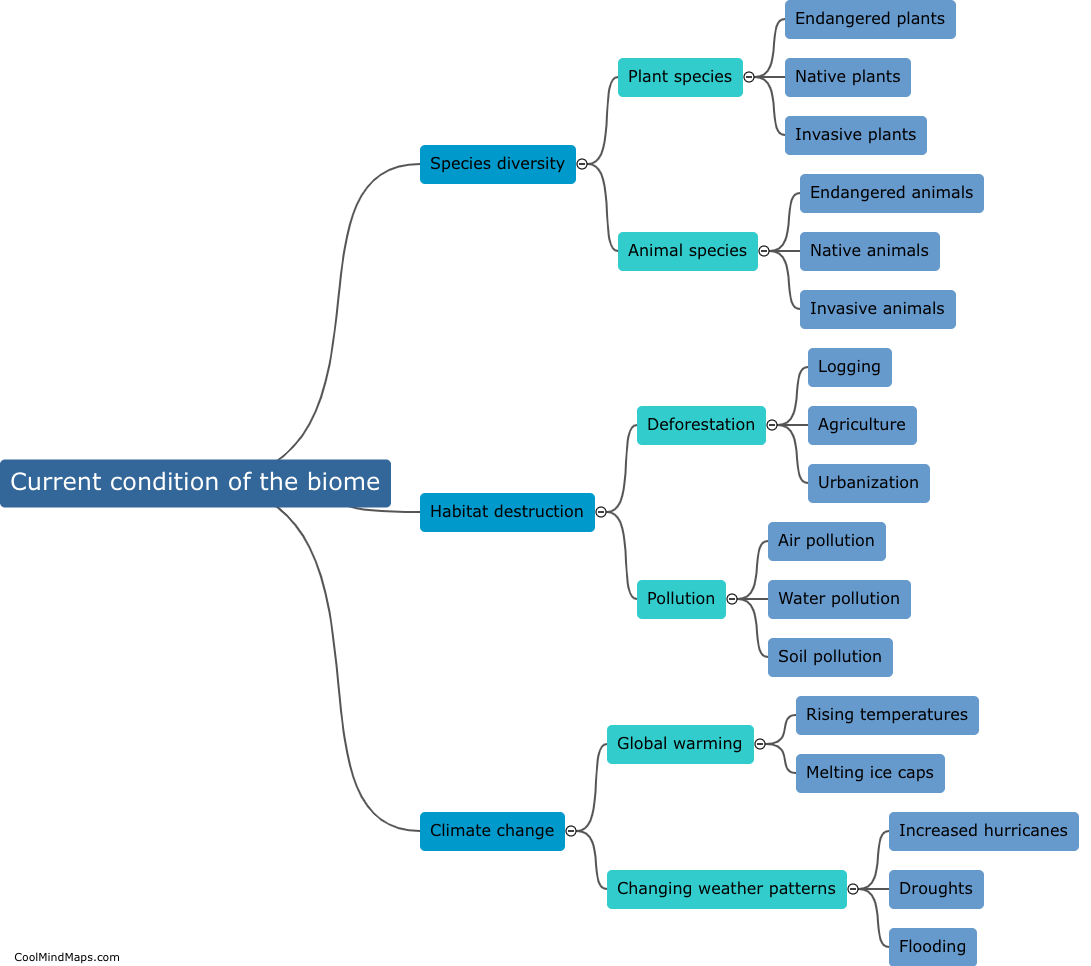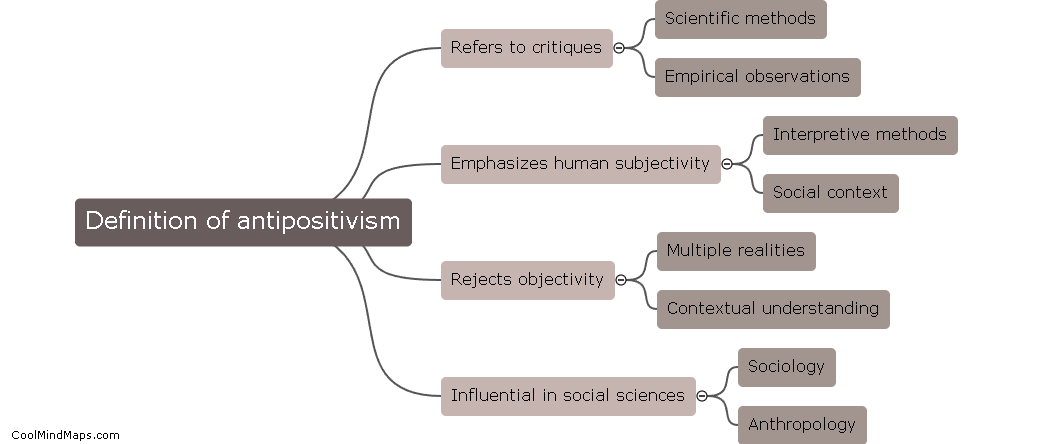What are the key principles of antipositivism?
Antipositivism is a theoretical stance in social science that rejects the positivist approach of seeking universal laws and quantitative data to explain social phenomena. Key principles of antipositivism include the belief that human behavior is not entirely predictable and cannot be reduced to statistical data. Antipositivists emphasize the importance of subjective interpretation, qualitative research methods, and understanding the unique contexts in which social phenomena occur. They argue that social reality is complex, multi-faceted, and influenced by various cultural, historical, and contextual factors that cannot be easily measured or quantified. Overall, antipositivism advocates for a more holistic and interpretive understanding of society.

This mind map was published on 20 September 2024 and has been viewed 54 times.











